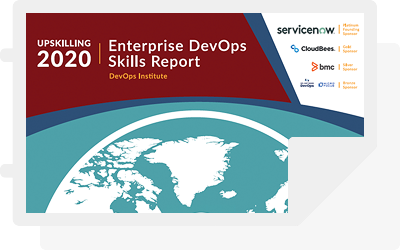The rise in popularity of DevOps practices and tools comes as no surprise to those who have already begun utilizing the new techniques centered around maximizing the efficiency of software enterprises. Similar to the way Agile quickly proved its capabilities, DevOps has taken its cue from that and built off of Agile to create tools and techniques that help organizations adapt to the rapid pace of development today’s customers have come to expect. As DevOps is an extension of Agile methodology, DevOps itself calls for extension beyond its basic form as well.
Collaboration between development and operations team members in an Agile work environment is a core DevOps concept, but there is an assortment of tools that fall under the purview of DevOps that empower your teams to maximize their efficiency, increase the speed of development, and improve the quality of your products. DevOps is both a set of tools and practices as well as a mentality of collaboration and communication. Tools built for DevOps teams are tools meant to enhance communication capabilities and create improved information visibility throughout the organization.
DevOps specifically looks to increase the frequency of updates by reducing the scope of changes being made. Focusing on smaller tasks at a time allows for teams to dedicate their attention to truly fixing an issue or adding robust functionality without stretching themselves thin across multiple tasks. This means DevOps practices provide faster updates that also tend to be much more successful. Not only does the increased rate of change please customers as they can consistently see the product getting better over time, but it also trains DevOps teams to get better at making, testing, and deploying those changes. The rate of change becomes faster, more efficient, and more reliable over time as teams adapt to the new formula.
In addition to new tools and techniques being created, older roles and systems are also finding themselves in need of revamping to fit into these new structures. Release management is one of those roles that has found the need to change in response to the new world DevOps has heralded.
What is Release Management?
Release management is the process of overseeing the planning, scheduling, and controlling of software builds throughout each stage of development and across various environments. Release management typically included the testing and deployment of software releases as well. Release management has had an important role in the software development lifecycle since before it was known as release management. Deciding when and how to release updates was its own unique problem even when software saw physical disc releases with updates occurring as seldom as every few years.
Now that most software has moved from hard and fast release dates to the software as a service (SaaS) business model, release management has become a constant process that works alongside development. This is especially true for businesses that have converted to utilizing continuous delivery pipelines that see new releases occurring at blistering rates. DevOps now plays a large role in many of the duties that were originally considered to be under the purview of release management roles; however, DevOps has not resulted in the obsolescence of release management.
With the transition to DevOps practices, deployment duties have shifted onto the shoulders of the DevOps teams. This doesn’t remove the need for release management; instead, it modifies the data points that matter most to the new role release management performs. Release management acts as a method for filling the data gap in DevOps. The planning of implementation and rollback safety nets is part of the DevOps world, but release management still needs to keep tabs on applications, its components, and the promotion schedule as part of change orders. The key to managing software releases in a way that keeps pace with DevOps deployment schedules is through automated management tools.
Automation and Release Management Tools
Release managers working with continuous delivery pipeline systems can quickly become overwhelmed by the volume of work necessary to keep up with deployment schedules. This means enterprises are left with the options of either hiring more release management staff or employing automated release management tools. Not only is staff the more expensive option in most cases but adding more chefs in the kitchen is not always the greatest way to get dinner ready faster. More hands working in the process creates more opportunities for miscommunication and over-complication.
Automated release management tools provide end-to-end visibility for tracking application development, quality assurance, and production from a central hub. Release managers can monitor how everything within the system fits together which provides a deeper insight into the changes made and the reasons behind them. This empowers collaboration by providing everyone with detailed updates on the software’s position in the current lifecycle which allows for the constant improvement of processes. The strength of automated release management tools is in their visibility and usability – many of which can be accessed through web-based portals.
Powerful release management tools make use of smart automation that ensures continuous integration which enhances the efficiency of continuous delivery pipelines. This allows for the steady deployment of stable and complex applications. Utilizing intuitive web-based interfaces provides enterprises with tools for centralized management and troubleshooting that helps them plan and coordinate deployments across multiple teams and environments. The ability to create a single application package and deploy it across multiple environments from one location expedites the processes involved in continuous delivery pipelines and makes the management of them much more simplified.
DevOps: Solutions for You
If DevOps sounds like a good fit for your organization’s needs but you want to make sure you get it right the first time, BMC is the IT solution partner you need. Read more about how automation and DevOps systems can help increase the rate at which you deploy products with BMC’s free eBook: Automate Cloud and DevOps Initiatives.
BMC expert consultants are available to work with you to bring their knowledge and expertise to your organization. BMC also provides custom-tailored Implementation Services for your organization to tackle the unique challenges you face. When partnering with BMC, you get:
- Faster service delivery: Agile releases that keep up with rapid demand
- Visibility across data: Ensure compliance and data accuracy
- Cost-effective service: Increased productivity and performance
- Experienced DevOps professionals: Equip you with the tools you need for success
- Conversion or upgrade: Seamless modernization or total replacement
- All tailored for the specific needs of your organization.
Download or view the Solution Implementation Overview online to learn more about how BMC Consulting Services can help you. Learn more about how DevOps and Application Deployment best practices can enable your teams to create better software faster than ever before. Then contact the experts at BMC to learn more about how to change up your release management practices to fit into your DevOps practices for enhanced building, testing, and deployment success.






